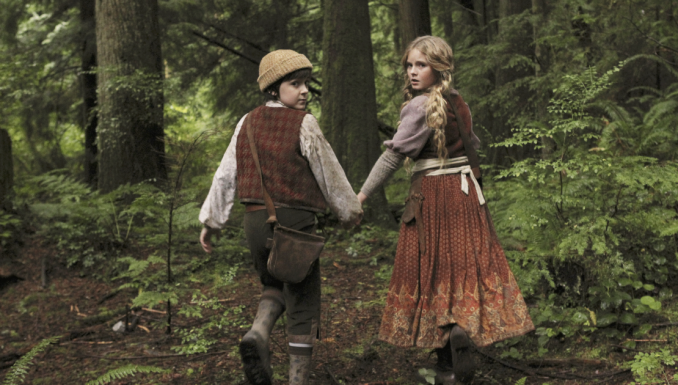Prior to applying for the Maurice Saxby Creative Development Program, I had been working on my Middle Grade novel, The Rat-catcher’s Apprentice for a few years. Over that time, it had undergone many edits and changes, the loss and addition of characters and many different versions of the ending. It is a story I deeply love and believe in, and after some rejection from agents and one publisher, I decided it was time to look for opportunities which would help me understand the writing and publishing industry in Australia and sharpen my skills as a writer.
Being one of the five chosen recipients for the 2018 Maurice Saxby Creative Development Program has been incredibly insightful and beneficial. It has been an enriching and unique experience for me as an emerging writer and I feel it has given me a greater direction. I never thought that I would have the chance to visit publishing giants like Allen & Unwin and Penguin and tell them about my work or meet the legendary John Marsden. The cherry on top was having Judith Rossell, author of the Stella Montgomery Intrigue series as a mentor.
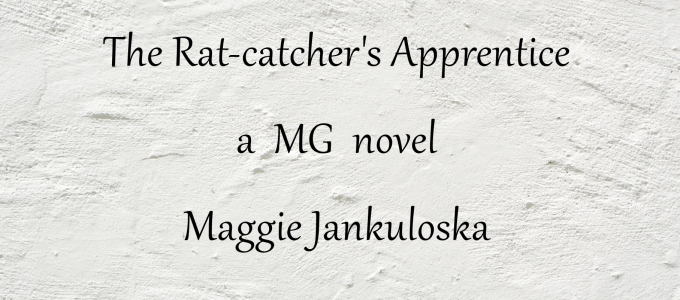
Due to my pregnancy I was unable to attend all workshops and events, but the organisers were accommodating and understanding and happy to provide me with all the information I missed out on. The fortnight was a productive and one-of-a kind experience exploring all the facets of writing, publishing and bookselling. By the end the writers and organisers felt like a little family and I developed a new confidence and enthusiasm for my manuscript.
I want to thank the CBCA, Judith Rossell, Pam Horsey, Helen Chamberlin and Suzanne Thwaites for being our staunch supporters and for all their help along the way.
August 20th
Meeting the fellow recipients and organisers of the MSCDP was initially a daunting experience. However, the warmth of Pam, Helen and Suzanne quickly made all the writers feel at ease and hearing about their selection process made me feel validated as a writer. Not only did these women with decades of experience in the Australian publishing and editing read my manuscript – but they liked it!
I was impressed by the diversity of the chosen recipients. Whether it was writing picture books, graphic, M.G or Y.A novels, we all shared a passion for stories which would resonate with young readers and we shared the hope of seeing them on bookshelves in our favourite bookshops. As well as writing in different genres, we were all at different stages in our writing careers, some agented, some published and self-published, or looking for an agent or publisher.
August 21st
We visited Readings Kids and chatted to Angela about the relationship between writers and booksellers as well as publishers and booksellers. We learnt that it’s crucial for publishers to send information about new releases which will engage booksellers and make them want to buy the titles. Also, a writer’s job does not end when their book is published. Arranging bookstore visits and events for young readers can boost sales and introduce writers to new and keen readers and staff who are likely to promote them.
Readings promote local writers and initiatives like The Readings Children’s Book Prize recognises the best new Australian books written for children.
Furthermore, Angela reminded us of the importance of unique storytelling and the need to avoid following literary fads whether it is regarding a genre or book cover design.
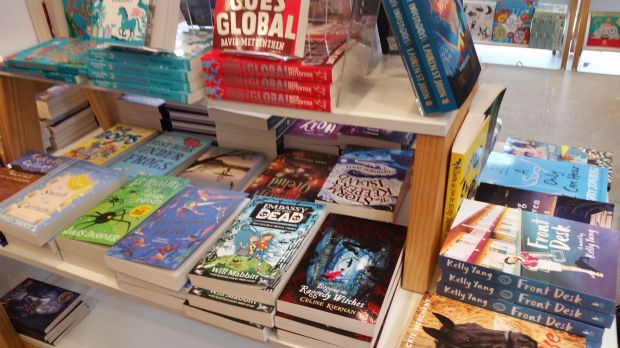
August 23rd
Our team got to visit the gorgeous Melbourne Allen and Unwin office and got to meet publisher Erica Wagner and senior editor Susannah Chambers who got to hear about our manuscripts, which was a dream come true.
We learnt more about the roles of editors who are advocates for authors. Allen and Unwin publish 85 books annually and a quarter of them are picture books. Allen and Unwin focus on representing and building up local writers and represent a small number of overseas writers.
Similar to Readings Kids, Erica and Susannah stressed the importance of quality visuals and designs when publishing a book for young readers. Allen and Unwin taught us the importance of school visits, library visits and the need to be proactive and build an audience as an emerging author.
We learnt of the popularity of memoirs and non-fiction books and got a sneak peak at the newly released YA novel Catching Teller Crow by Ambelin and Ezekiel Kwaymullina who are a brother-sister team of Aboriginal writers who come from the Palyku people of the Pilbara region of Western Australia.
Erica and Susannah reminded us of the importance of perseverance when it comes to writing and the long road towards publishing. Before leaving we got to browse the dozens of beautiful children’s book titles on the Allen and Unwin bookshelves, which made it hard to leave the office.
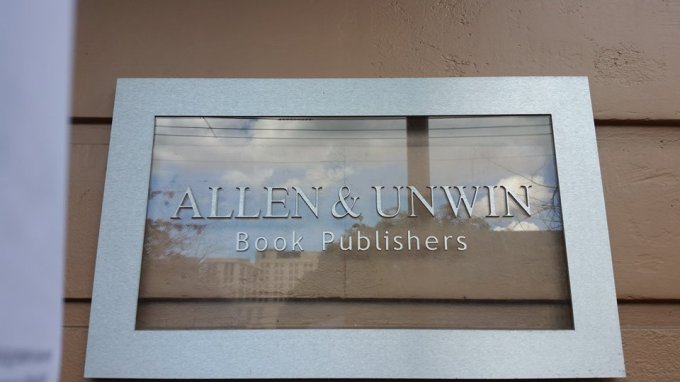
August 24th
Visiting the gorgeous Penguin offices was a surreal experience. We got to chat with editor Amy Thomas and publisher Lisa Riley about the 100 children’s books they publish annually.
They stressed the importance of writing diverse characters with convincing authentic voices, and cultural sensitivity. Furthermore, they reminded us that humour in children’s books is always popular and universal.
We got a sneak preview of some of Penguin’s upcoming titles, like The Adventures of Catvinkle by Elliot Perlman.
Once again us five writers got to share a little about our own manuscripts with the Penguin team and learned the best approaches for future submissions.
August 27th
At the start of our second week, we visited the Brunswick offices of Scribble publishing, an imprint of Scribe Publication. They are a design-driven publishers of picture books, who represent local and international authors and illustrators. Scribble like to experiment with new formats, like board books with flaps and some Australian picture books have been translated in Korean, Italian, French and Spanish.
Editor and YA author Kate O’Donnell explained that Scribble searches for picture books which present an authentic children’s view and a philosophical view of the world from a child’s view. We were lucky enough to see proofs of some of Scribble’s titles and learn more about the printing and book making process.
We got to flip through some of their titles like, Rhyme Cordial and All the Ways to be Smart.
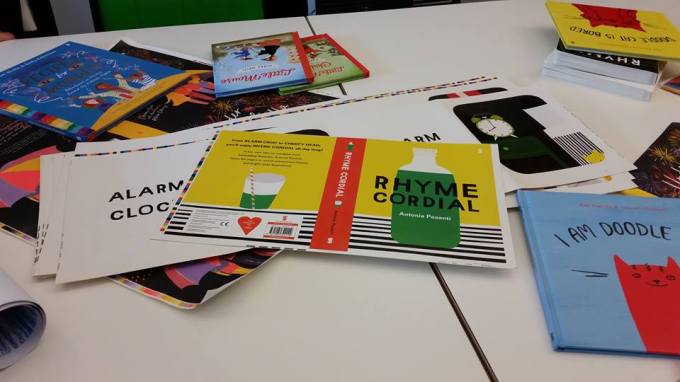
August 28th
We had a coffee date with Alexanda Yatomi-Clarke, Managing Director of Berbay Publishing. In 2017, Berbay Publishing won BOP for Best Children’s Publisher of the Year (Oceania) at the Bologna International Book Fair.
Alexandra explained that she was looking to produce books she would have liked her children to read, “clever books for clever kids”. She stated that parents have a responsibility to guide young readers and that producing a good book full of integrity is more important than sales and profit.
Berbay Books will be publishing 12 books in 2019 and Alexandra stated that there is strength in non-fiction books which are educational and make history engaging and fun, like M is for Mutiny.
One of Alexandra’s aims was to stick with her authors and work towards establishing them. Alexandra also informed us that Berbay Publishing will be expanding and consider publishing junior and YA novels in the future.
August 30th
On our second last day we attended the Melbourne Writer’s Festival School’s Program. We got to hear literary greats Alice Pung and John Marsden talk about writing as a creative outlet and the influence Marsden’s work has had on Pung. Pung and Marsden both discussed the need to create realistic and complex characters, instead of one-dimensional “goodies and baddies”.
John Marsden explained the need to find a character’s voice before writing a novel and if he could give his younger self one piece of advice, he’d edit whatever is unnecessary.
We got to meet John Marsden after the panel and he taught us that literature should not be preachy and it should be trying to get closer to the truth, especially when portraying the turbulence of adolescence.
John was incredibly modest, approachable and eager to answer our writing-related questions.
That same afternoon we listened to Jessica Townsend, author of the hugely popular novel, Nevermoor. She was interviewed by Luca, one of the judges of the 2018 Inky Awards. Jessica revealed her long road to finishing Nevermoor and her plan to turn Nevermoor into a 9-part series, which pleased the many young readers in the audience.
That night the five writers got to meet past recipients and mentors of the Maurice Saxby Creative Development Program at Suzanne Thwaites’ home. It was encouraging and inspiring to see how the program has benefited other writers, some of whom were in the process of being published. The night felt like a catch up with an extended family.
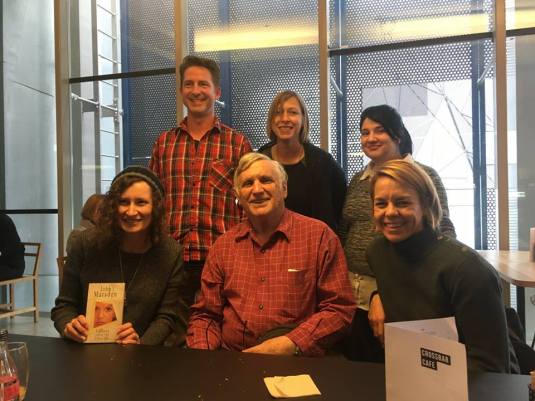
August 31st
For our last day, Helen organised a visit to the offices of literary agent Claire Forster of Curtis Brown. Visiting an agent seemed like a great way to wrap up our journey of meeting authors, booksellers, editors and publishers.
Claire talked us through the recent publications of her clients. She explained that the role of an agent is to be a neutral but helpful presence, capable of stirring competition among publishers when it comes to selling a book.
Like the publishers we met, Claire stressed the importance of a powerful hook and pitch when submitting. Furthermore, as an agent, she recommended that emerging writers looking for representation should be committed to professional development, know the market trends and demonstrate writing experience.
Mentorship
After our visits wrapped up, I got to have a meeting with author Judith Rossell who read my novel and provided a fresh perspective and helpful feedback. Judith praised my plot and story arc and my stronger characters. She also complimented my world building and description.
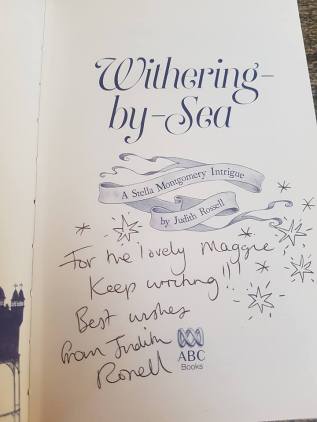
At the same time, she provided me with feedback on how to make my protagonist more well-rounded and how to tie in some loose ends. Judith’s eagle-eyed observation has helped me feel new enthusiasm and have fresh ideas for my plot and characters.
Since our meeting, I have been rewriting my first few chapters and feel like I am making the appropriate changes to make my novel fit for submissions.

